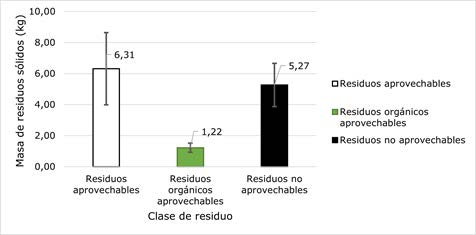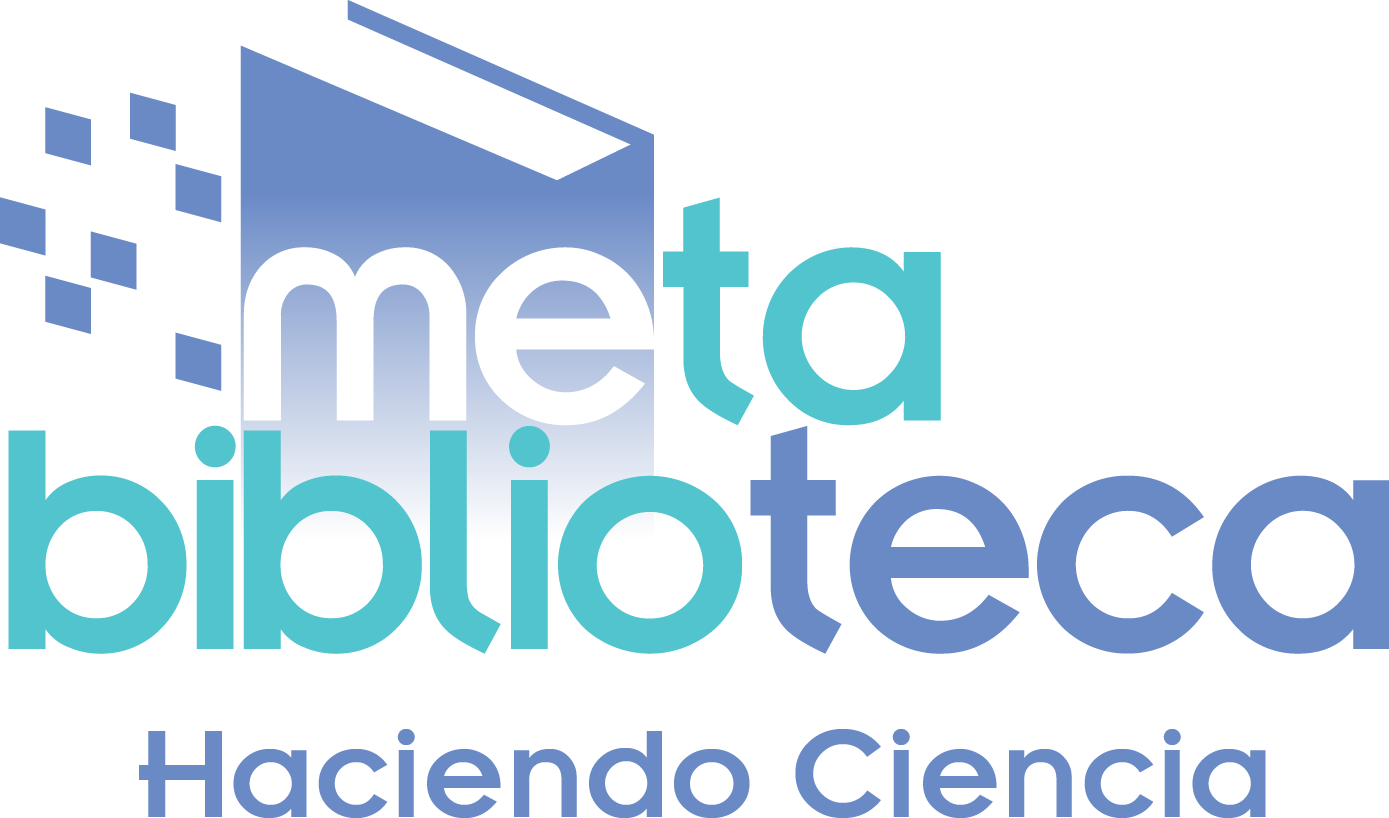Integral management of waste in a cleaning services providing company: proposal for improvement
Manejo integral de residuos en una empresa prestadora de servicios de aseo: propuesta de mejora


This work is licensed under a Creative Commons Attribution-NonCommercial-NoDerivatives 4.0 International License.
Copyright statement
The authors exclusively assign to the Universidad EIA, with the power to assign to third parties, all the exploitation rights that derive from the works that are accepted for publication in the Revista EIA, as well as in any product derived from it and, in in particular, those of reproduction, distribution, public communication (including interactive making available) and transformation (including adaptation, modification and, where appropriate, translation), for all types of exploitation (by way of example and not limitation : in paper, electronic, online, computer or audiovisual format, as well as in any other format, even for promotional or advertising purposes and / or for the production of derivative products), for a worldwide territorial scope and for the entire duration of the rights provided for in the current published text of the Intellectual Property Law. This assignment will be made by the authors without the right to any type of remuneration or compensation.
Consequently, the author may not publish or disseminate the works that are selected for publication in the Revista EIA, neither totally nor partially, nor authorize their publication to third parties, without the prior express authorization, requested and granted in writing, from the Univeridad EIA.
Show authors biography
The increase in industrial activities has led to greater production of solid waste, the poor management of these negatively impacts the environment and human health, therefore there is a need to promote the correct management of waste at national, regional and local levels. The objective of this study is to update the rates of generation and identification of the problems associated with waste management, in order to formulate a proposal for improvement for the Integral Management of Solid Waste (non-hazardous) that is carried out in two main headquarters of a public cleaning service provider company. In the first phase, the general features of the headquarters were collected through searching company official site. In the second phase, a diagnosis of the current situation of waste management is by means of through field visits, the processing of checklists, photographic records, among others. Subsequently, the characterization and quantification of the waste were carried out following the guidelines of the Manual for the Integral Management of Waste in the Aburrá Valley and the technical standard ASTM D5231–92. Finally, we assessed if environmental management activities are in line with technical and regulatory aspects and afterwards formulated management measures that would optimize internal waste management. As results we obtained that the operation and maintenance headquarters is the one with the highest waste generation with an average of 12.81 kg/day, slightly higher than the 9.90 kg/day of the administrative headquarters. In both locations, usable waste has the greatest share, representing 49.31% and 45.25 %, for base of operations and administrative headquarters, respectively. Generation rates are below some companies in the manufacturing and education sector.
Article visits 568 | PDF visits 375
Downloads
- Alcocer Quinteros, P. R., Cevallos Muñoz, O., & Knudsen González, J. (2019). Mejoramiento de la gestión integral de los residuos sólidos urbanos en el cantón de Quevedo, Ecuador. Universidad y Sociedad, 11(5), 362–367.
- Área Metropolitana del Valle de Aburrá. (2007a). Manual para el Manejo Integral de Residuos en el Valle de Aburrá (pp. 1–47).
- Área Metropolitana del Valle de Aburrá. (2007b). Resolución Metropolitana No. 879.
- Ariza-Díaz, A., Torre, V. S.-D. La, Bahamón-Restrepo, A., Díaz-Mendoza, C., & Pascualino, J. (2020). Diagnóstico comunitario para manejo integral de residuos sólidos. Producción + Limpia, 15(2), 153–174. https://doi.org/10.22507/PML.V15N2A10
- ASTM International. (2016). ASTM D5231-92, Standard Test Method for Determination of the Composition of Unprocessed Municipal Solid Waste. https://www.astm.org/Standards/D5231.htm
- Azevedo, B. D., Scavarda, L. F., Caiado, R. G. G., & Fuss, M. (2021). Improving urban household solid waste management in developing countries based on the German experience. Waste Management, 120, 772–783. https://doi.org/10.1016/j.wasman.2020.11.001
- da Silva, L., Marques Prietto, P. D., & Pavan Korf, E. (2019). Sustainability indicators for urban solid waste management in large and medium-sized worldwide cities. Journal of Cleaner Production, 237, 117802. https://doi.org/10.1016/j.jclepro.2019.117802
- Ferrão, C. C., & Moraes, J. A. R. (2021). Analysis of environmental risks and accidents at work in urban solid waste collection services. Gestão & Produção, 28(1), 2021. https://doi.org/10.1590/1806-9649.2020v28e4885
- Hashemi, H., Pourzamani, H., & Rahmani Samani, B. (2014). Comprehensive Planning for Classification and Disposal of Solid Waste at the Industrial Parks regarding Health and Environmental Impacts. Journal of Environmental and Public
- Health, 2014, 1–6. https://doi.org/10.1155/2014/230163
- Kaza, S., Yao, L. C., Bhada-Tata, P., & Van Woerden, F. (2018). What a Waste 2.0: A Global Snapshot of Solid Waste
- Management to 2050. Washington, DC: World Bank. https://doi.org/10.1596/978-1-4648-1329-0
- Largo-Wight, E., De Longpre Johnston, D., & Wight, J. (2013). The efficacy of a theory-based, participatory recycling intervention on a college campus. Journal of Environmental Health, 76(4), 26–31.
- Ministerio de Ambiente y Desarrollo Sostenible. (2019). Resolución No. 2184 (pp. 1–9).
- Ministerio de Vivienda Ciudad y Territorio. (2015). Decreto No. 1077 (pp. 1–829).
- Ponte de Chacín, C. (2008). Manejo integrado de residuos sólidos: Programa de reciclaje. Instituto Pedagógico de Caracas. Revista de Investigación, 32(63).
- Rodriguez Romo, Y. D., Reyes Solarte, F., & Azain Ortega, D. F. (2021). CRITERIOS DE IMPLEMENTACIÓN ISO 14001:2015
- SECTOR PRODUCTIVO PRESTACIÓN SERVICIO PÚBLICO DOMICILIARIO DE ASEO; RECOLECCIÓN, TRANSPORTE, TRATAMIENTO Y DISPOSICIÓN FINAL DE RESIDUOS SÓLIDOS (pp. 1–8). Universidad Nacional Abierta y a Distancia.
- Rodriguez Trujillo, J. D., & Urrego Urrego, F. E. (2020). Plan de manejo integral de residuos sólidos para la empresa eco tienda del municipio de Urrao Antioquia [Tecnológico de Antioquia]. https://dspace.tdea.edu.co/handle/tdea/965
- Rojas-Vargas, J., Monge-Fernández, Y., & Herrera-Araya, A. (2020). Management and use of organic solid waste during the period 2013−2016 at Universidad Nacional. Uniciencia, 34(1), 60–73. https://doi.org/10.15359/ru.34-1.4
- Ruiz Morales, M. (2012). Caracterización de residuos sólidos en la Universidad Iberoamericana, ciudad de México. Rev. Int. Contam. Ambie, 28(1), 93–97.
- Saldivar-de Salinas, L. R., Villar, L., Valleau, V., & Barrios-Leiva, O. (2021). Sistema de gestión de residuos sólidos para la Universidad Nacional de Asunción, Paraguay. Periodo 2015-2019. Población y Desarrollo, 27(52), 15–29. https://doi.org/10.18004/pdfce/2076-054x/2021.027.52.015
- Varón Jiménez, L. M. (2010). Aspectos arquitectónicos para la gestión de residuos sólidos domiciliarios en el Área Metropolitana del Valle de Aburrá. Producción + Limpia, 5(2), 36–47.




